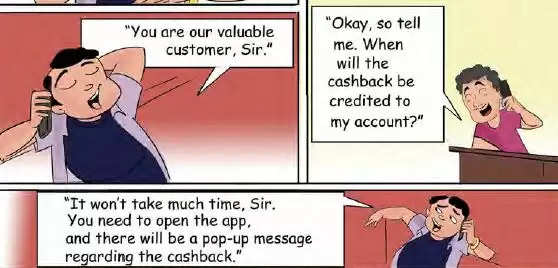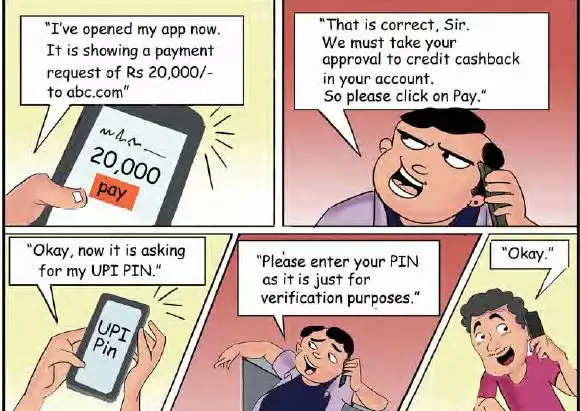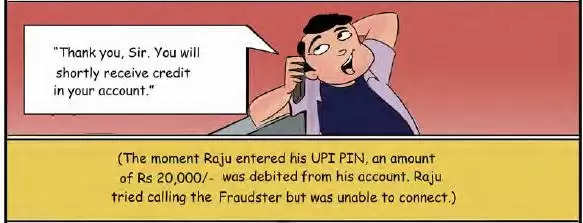Cyber Fraud Part 32: Online Fraud Using Cashback Offers
Cashback scams are becoming increasingly prevalent, with scammers impersonating brands and sending malicious SMS or links on social media, promising attractive cashback rewards. Many people fall prey to these scams, resulting in the loss of their account details and money.
The Covid-19 outbreak has accelerated the use of digital payments, as people aim to minimize physical encounters for safety. While this shift to online payments offers convenience, it has also led to a rise in internet fraud, particularly targeting individuals unfamiliar with modern technologies.
How Cashback Scams Work?




Scammers trick individuals into believing they are eligible for a cashback reward, rebate, or refund. Typically, these scams begin with an unsolicited email, phone call, or message claiming the recipient is entitled to money back from a recent purchase or overpayment. The scammer then asks for personal and financial information, such as bank account details or credit card numbers, to process the cashback. This information is used to steal money, commit identity theft, or carry out other fraudulent activities. Victims may also be directed to click on malicious links or download harmful software, further compromising their security.
How to Avoid These Scams?
- Report the Incident:Contact the nearest Cybercrime Police Station and National Cybercrime reporting portal. https://cybercrime.gov.in/
- Verify Offers:Always check the authenticity of the cashback offer. Look for official communications from reputable companies and cross-verify through their official websites or customer service.
- Protect Personal Information:Be cautious about sharing personal and financial details. Scammers often request this information for fraudulent activities.
- Use Secure Payment Methods: Opt for secure and trusted payment methods. Avoid making payments through unverified links or platforms.
- Research Offers:Read reviews and feedback from other users about the cashback offer. Genuine offers will have satisfied customers.
- Trust Your Instincts:If a cashback offer seems too good to be true, it probably is. Avoid deals that promise unrealistic returns.
- Stay Informed:Stay updated on the latest scams and share this knowledge with friends and family. Awareness is a powerful tool against fraud.
- Report Suspected Scams:If you encounter a suspected scam, report it to the relevant authorities to help prevent others from becoming victims.
To join us on Facebook Click Here and Subscribe to UdaipurTimes Broadcast channels on GoogleNews | Telegram | Signal



